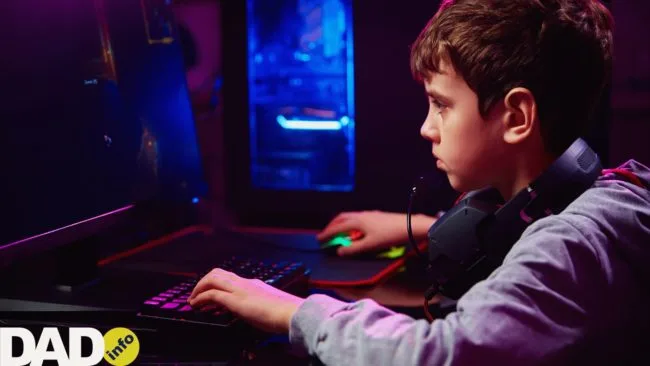
Keeping track of your child’s online life can be challenging. Online video gaming poses difficulties for parents trying to monitor their child’s activity. Gaming and gambling safety charity Ygam shared with us their tips for working with your kids to keep them safe:
The immersive world of gaming
87% of young gamers aged between 8 to 25 years old play online at least three times a week, with 58% playing every day. Online gaming has surpassed being a pastime for many young people and has become a place where they build relationships, enhance skills, and enjoy new experiences. But, keeping track of what your child is up to and who they are talking to is vital for their safety, so how can you do so?
Keeping your child safe
For parents, the path to effective safeguarding lies in empowering young people to have some control over their digital lives, enhancing their knowledge, and having open conversations.
As a parent you may feel it’s necessary to heavily monitor your child’s online activity, whether that be through monitoring, parental controls, checking PEGI ratings, or reading game reviews. However, while some monitoring is important, also be sure to engage them in the process of safeguarding.
Aim to put emphasis on the positives that online video gaming can bring, as well as having conversations and discussions about the risks with your young person.
Empowering youths to make smart choices
One effective approach to empowerment in schools is establishing youth forums, where children contribute to the development of codes of conduct and behavioural policies. Young people sharing their experiences, opinions, and concerns in decision-making processes reduces feelings of alienation or preconception.
This idea also works in the family home; start a conversation with your child about their online life and how they can protect themselves.
Being there for your young person
Research from the UK Safer Internet Centre suggests parents and guardians are one of the first points of contact for a young person who has experienced something troubling online. The research showed that at least 80% of 8 to 17-year-olds are comfortable with turning to their parents or guardians for support.
However, some young people feel unable to talk to their parents, with 1 in 10 reporting they couldn’t discuss their online life. A lack of understanding about their child’s online activity can cause parents to feel alienated.
A 2023 online survey carried out by online safety charity Ygam revealed that 1 in 3 adults think that video gaming has
negatively impacted their relationship with their children. 1 in 5 adults believe that video gaming has negatively impacted their children’s social skills.
However, online video gaming is now more than entertainment; it’s a digital world where young people exist authentically. Video gaming helps to build many transferable skills such as hand-eye coordination, teamwork, strategy, and communication.
Blocking screen time
When concerned about the risks of gaming many parents limit daily screen time for the children. Unfortunately, eliminating every risk is not always feasible. Extreme suggestions like removing device access or banning social
media may isolate children, hindering conversations and relationships.
How to help keep your child safe online
- Take an interest and increase knowledge. Engage in discussions about gaming and social media, trying out apps, and understanding platforms young people use.
- Understand why. Explore reasons behind young people’s gaming interests – whether for social interaction, entertainment, escapism, challenge, or competition.
- Co-develop solutions. Address worries collaboratively, suggesting reasonable actions instead of imposing strict restrictions.
- In-game communications: Discuss the social aspects of gaming and understand how gamers communicate with each other, enabling you to identify potential safeguarding concerns.
- Include digital safety naturally: Integrate online safety discussions into everyday conversations, making it a normal part of dialogue.
- Time and place: Select opportune moments to start conversations, acknowledging that young people may feel more comfortable expressing themselves in different ways.
- Educate yourself: Register for one of Ygam’s free online workshops on video gaming and gain access to expert information, advice and guidance.








